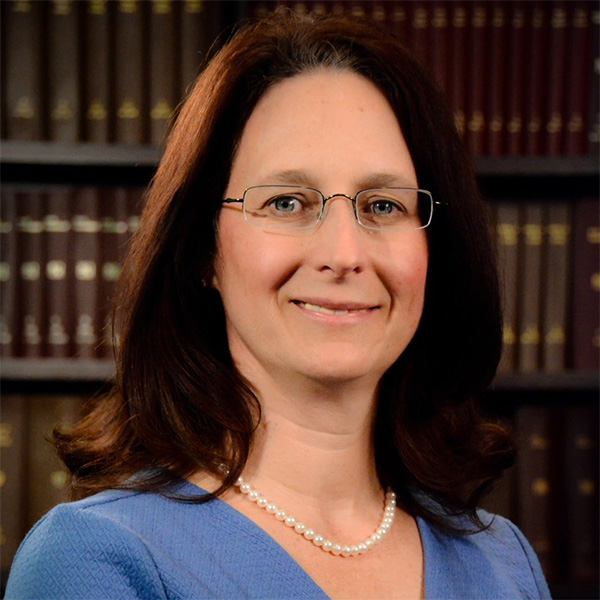Belongingness
PRESIDENT’S MESSAGE
If you were living in the United States in the 80s, you can almost certainly sing along to the theme song from the television sitcom Cheers. “Making your way in the world today takes everything you’ve got …. Sometimes you want to go where everybody knows your name, and they’re always glad you came. You wanna be where you can see our troubles are all the same. You wanna be where everybody knows your name.” A catchy tune—and a universal truth.
Though they may not have had a word for it, the founders of IFT most certainly organized our institute from the innate human sense of belongingness. It was many years later that Abraham Maslow’s book Motivation and Personality was published, citing belonging in his famous hierarchy of needs, ranked just after the physical requirements for human survival and a sense of personal safety. While IFT’s founders certainly wanted to create a forum for disseminating scientific information and innovation and to provide resources necessary to be better professionals and scientists, the foundation of our institute was also built upon our human desire to belong, for friendship, camaraderie, and common ground.
In modern professional and higher education contexts, it has become almost taboo to discuss the interpersonal relationships that help us manage the stress and complexities of our professional worlds. But our humanity isn’t altered when we walk in the door of the office, lab, or classroom. Studies have proven that belongingness is tied directly to student, employee, and organizational success. We seek to connect, discuss, laugh, be understood, be valued, and, yes, to do meaningful work and learn.
So, it is not surprising that one of the promises within IFT’s strategic plan is the idea of network, wherein we promise to “establish productive and interactive global networks on our members’ behalf.” The sterility of these words somewhat hides the deeper meaning behind them, which is very much about belongingness. It is a promise that you are welcome, that we will find ways to engage you and for you to engage, and that you are included and valued.
It’s important, however, for all of us to remember that the notion and value of a network relies entirely upon the sum of its interconnected parts. In the case of IFT, it’s our members. Those of us who are benefiting from this network—and the belongingness that it brings—have an obligation to engage those for whom a sense of belonging is still not being felt. The truth? Networking is hard for a lot of people.
Two years ago, a survey of nearly 2,500 current and former IFT members revealed insights about our community’s feelings about networking. When asked about their confidence meeting new people and building relationships, only 32% strongly agreed they were confident. Meanwhile, nearly 78% of respondents said they felt more comfortable networking when they were being introduced by someone they already know. More than 50% of total respondents agreed they would benefit from someone coaching them on networking, and this number rose to 80% when asked exclusively of students.
The dichotomy of the IFT experience—and that of many organizations to which someone “belongs”—is that many of our members join us to experience a sense of belongingness, and many leave because that’s not what they’re getting. To those for whom networking comes easily, to those who have a friend or colleague already part of the IFT network, and for those that don’t feel a sense of otherness, being part of our network can feel natural, easy, and, welcoming. But for many members of our professional community, the promise of belonging is not being fully realized. Last year, interviews and focus groups conducted by the Ivy Group as part of our Diversity and Inclusion Task Force identified that some members perceive a culture of “insiders” versus “outsiders” within IFT. This is something we each should own and commit to do better.
The value that an institute like IFT brings is built upon the collective knowledge and contributions of its members. If our membership is not inclusive, if we don’t bring new ideas, new skepticism, new debate, and new thinking to our community, then those new ideas will find a home elsewhere. If we enable inclusivity to thrive, it will allow our diversity to enhance innovation and problem solving.
The opportunity before us, each of us—in our Sections, Divisions, supplier nights, committees, task forces, offices, labs, classrooms, and everywhere else where we feel a sense of belonging to this professional community—is to consider who could or should belong in these spaces. My challenge to each of you is to invite someone to join you in the next IFT event or activity you’re involved with, and to help them feel welcomed and to find a sense of belonging. Let’s all act together to help ensure that IFT is the kind of place we all can go anytime we want to feel that sense of belonging. A place where everybody knows your name.
 Cindy Stewart, PhD, CFS
Cindy Stewart, PhD, CFS
IFT President, 2017–2018
Global Cultures and Food Protection Technology & Innovation Leader, DuPont Nutrition & Health, Wilmington, Del.
[email protected]


